Small Business Bankruptcy Attorney in Orange County, CA
Home » Practice Areas » Orange County Bankruptcy » Business Bankruptcy » Small Business Bankruptcy
Practice Areas
Bankruptcy Solutions for Small Businesses in Southern California
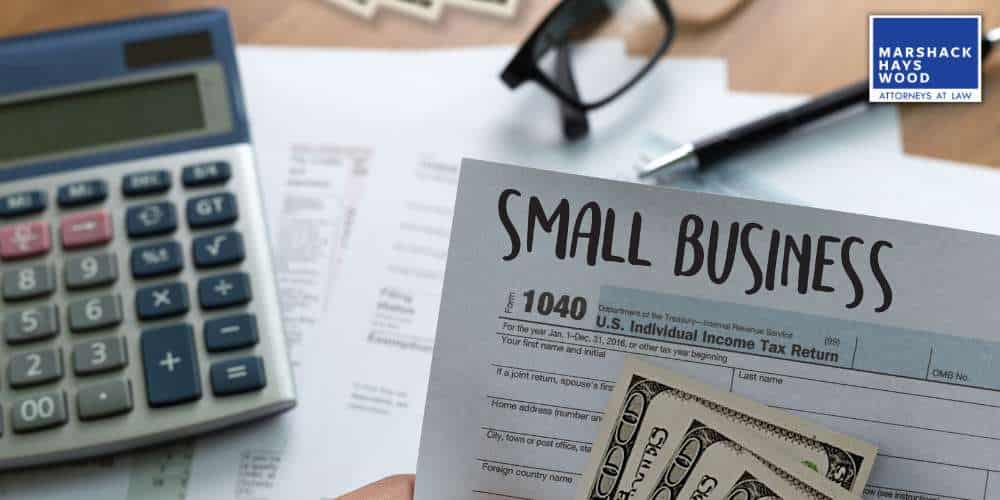
At Marshack Hays Wood, an experienced bankruptcy law firm in Orange County, our attorneys assist small business owners who are struggling with financial pressures and need a clear path forward. We recognize that financial distress can feel overwhelming, and our team works closely with you to provide the knowledge and support necessary to make informed choices about your business’s future.
Whether you are evaluating Chapter 7, Chapter 11, or Chapter 13 options for your business, our Orange County business bankruptcy lawyers guide you through each step with straightforward advice and practical strategies. With Marshack Hays Wood on your side, you gain a steady legal team committed to helping you work toward a more stable financial foundation.
To schedule a free consultation, call our office at (949) 333-7777 today.
Understanding Small Business Bankruptcy
Small businesses can file for bankruptcy protection under various chapters of the Bankruptcy Code, depending on their business structure. Unlike in a personal bankruptcy, a business bankruptcy may allow filers to wipe out both business debts and personal debts.
Sole proprietors, partnerships, limited liability partnerships (LLPs), corporations, and limited liability corporations (LLCs) can all file bankruptcy under the Bankruptcy Code.
Bankruptcy for Sole Proprietorships
A sole proprietorship is a business structure in which the owner and the business are considered a single entity rather than separate legal entities. So, the sole proprietor is personally liable for the business’s debts. Therefore, filing for bankruptcy as a sole proprietorship typically involves personal bankruptcy proceedings, such as Chapter 7 or Chapter 13. The process can involve both business and personal assets.
In Chapter 7, the business’s assets are liquidated to pay off creditors, while in Chapter 13, a repayment plan is devised to gradually pay off debts over a period of time. This allows the sole proprietor to address their financial challenges and potentially obtain relief from overwhelming debt while seeking a fresh start for their business entity.
Bankruptcy for Partnerships and Limited Liability Partnerships (LLPs)
Partnerships and limited liability partnerships (LLPs) are eligible to seek bankruptcy protection under the United States Bankruptcy Code when financial pressures make it difficult to meet their obligations. These entities may file under Chapter 7 to liquidate assets and distribute the proceeds to creditors, or under Chapter 11, which allows the business to reorganize, restructure debt, and continue operating.
In a Chapter 7 case, the partnership’s property is sold, and the funds are applied to outstanding debts. A Chapter 11 filing, by contrast, gives the partnership the opportunity to propose a repayment plan that supports ongoing operations while addressing creditor claims. Either option provides a structured legal framework for addressing financial challenges and potentially achieving a more sustainable financial future.
Bankruptcy for Corporations and Limited Liability Corporations (LLCs)
Corporations and limited liability companies (LLCs) can also file for bankruptcy protection. When a corporation or limited liability company faces financial difficulties and cannot meet its obligations, it can file for bankruptcy under Chapter 7 for liquidation of assets, Chapter 11 for reorganization and debt restructuring, or, in some cases, Chapter 13 if it qualifies as a small business. Chapter 7 involves the sale of the company’s assets to pay off creditors, while Chapter 11 allows the company to develop a repayment plan to restructure its debts and continue operating.

Types of Small Business Bankruptcy in California
For small businesses, the US Bankruptcy Code outlines three primary options for filing bankruptcy: Chapter 7, Chapter 11, and Chapter 13. Each chapter serves a specific purpose and has specific requirements that a business must meet to file under that chapter.
Chapter 7 Bankruptcy for Small Businesses
Sole proprietors, partnerships, corporations, and LLCs can all use Chapter 7 when financial pressures make continued operations impossible.
Also known as liquidation bankruptcy, Chapter 7 requires the sale of the business’s assets so creditors can be paid in an orderly manner. The bankruptcy court appoints a bankruptcy trustee to take control of the business assets, review financial records, and oversee the liquidation process. Once the assets are sold and the available funds are distributed, any remaining eligible debts are discharged, giving the business closure and eliminating lingering obligations.
For owners evaluating this option, our Orange County Chapter 7 bankruptcy lawyers help determine whether Chapter 7 is the most practical path based on the structure of the business, the nature of its debts, and long-term goals. An important feature of Chapter 7 bankuptcy is that businesses with more business debt than personal debt are not required to pass the Chapter 7 means test, making this relief more accessible for struggling entrepreneurs.
Chapter 11 Bankruptcy for Small Businesses
Chapter 11 bankruptcy, aka reorganization bankruptcy, provides structured bankruptcy relief for small businesses that want to stabilize operations while addressing overwhelming debt. This option is designed to help a business reorganize its financial obligations rather than close its doors, making it a useful tool for companies with strong revenue potential but that need time and flexibility to recover.
Under this legal process, the business proposes a reorganization plan that outlines how creditors will be repaid over time. The business typically remains in possession of its assets and continues day-to-day operations while working through the reorganization process. This level of control allows owners to preserve customer relationships, retain employees, and protect the business’s value during restructuring.
Although Chapter 11 can be more costly and procedurally involved than other forms of bankruptcy, it offers broader options for modifying contracts, renegotiating secured debt, and creating more manageable payment structures. Corporations and LLCs frequently use Chapter 11, but this bankruptcy process is also available to partnerships and sole proprietors who need a path to recovery. A dedicated Chapter 11 bankruptcy attorney from our firm can guide small business owners through each step, ensuring the reorganization strategy aligns with both legal requirements and business goals.
Chapter 13 Bankruptcy for Small Businesses
Chapter 13 bankruptcy offers a repayment-based path to relief for small business owners who qualify as individuals with regular income. Although originally created for consumers, this option can help sole proprietors and certain partnerships repay creditors through a structured plan that lasts three to five years. During this period, owners keep control of their assets and continue operating while making steady payments under court supervision.
It is important to understand that Chapter 13 only eliminates the filer’s personal liability for business debts. Even so, it remains an effective tool for owners with predictable income who want to protect equipment, inventory, or other essential assets. The repayment plan can address both secured and unsecured obligations, giving business owners a more manageable way to meet their financial responsibilities.
Our Chapter 13 bankruptcy lawyers in Orange County help determine whether Chapter 13 is the right fit based on income, debt levels, and business goals. With our guidance, small business owners gain a clear path toward stability while preserving the operations they rely on every day.
Subchapter V – The Small Business Reorganization Act
Subchapter V of the Small Business Reorganization Act provides a streamlined path for small businesses facing financial trouble to reorganize and regain stability. Designed to simplify traditional bankruptcy cases, Subchapter V removes many of the barriers that previously made Chapter 11 too costly or complicated for smaller enterprises. This process gives owners a practical opportunity to restructure debt, preserve operations, and work toward a fresh start financially.
Our experienced Orange County bankruptcy lawyers at Marshack Hays Wood help small business owners receive clear explanations of how Subchapter V works and how bankruptcy law provisions apply to their situation. Our attorneys help prepare the required filings, develop a workable repayment plan, and advocate for terms that support business sustainability.
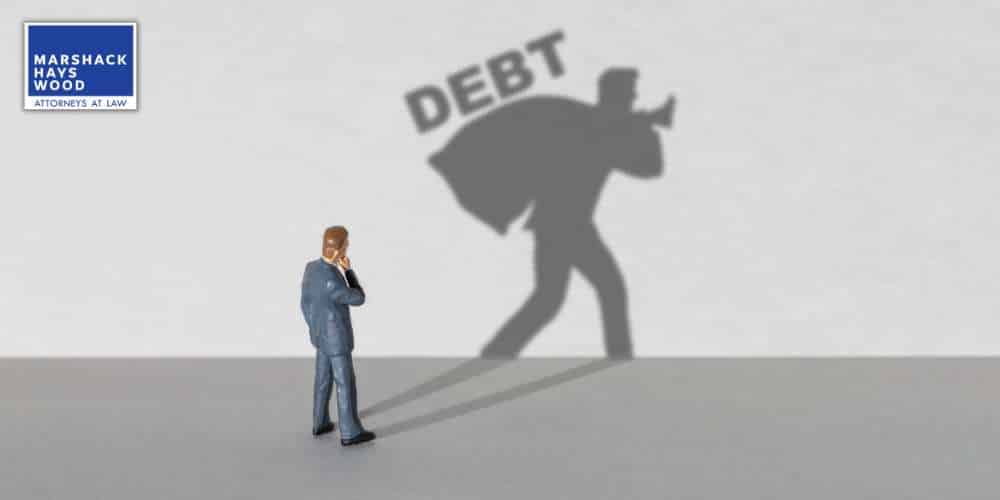
When Small Businesses Should Consider Bankruptcy
Small businesses may need to evaluate bankruptcy when debt becomes unmanageable, lawsuits escalate, or creditor harassment interferes with day-to-day operations. If revenue no longer covers expenses or debts, bankruptcy can create space to recover by stopping collection actions and providing structured options for relief. Filing may also be in the best interest of the business when market downturns, economic shifts, or the loss of major clients place the company at risk of shutting down.
Businesses with liabilities that far outweigh their assets may benefit from a process that allows for orderly liquidation or court-supervised reorganization. With guidance from a small business bankruptcy attorney at Marshack Hays Wood, owners can develop strategies tailored to their financial realities and make informed decisions about whether bankruptcy is the most practical path toward stability or a necessary step toward a new beginning.
Benefits of Bankruptcy for Small Business Owners
Bankruptcy offers meaningful opportunities for debt relief and a fresh financial start when a business can no longer sustain its financial obligations. Some of its greatest benefits include:
- Provides immediate relief from collection efforts and creditor lawsuits, especially helpful for businesses facing possible closure or unstable cash flow.
- Gives owners the breathing room needed to assess their situation without the constant pressure of phone calls, garnishments, or legal action.
- Allows owners to develop a court-approved reorganization plan to restructure debt and improve financial stability.
- Supports renegotiation of repayment terms, reduction of monthly payments, and potential elimination of unsecured debt.
- Enables the business to shed unprofitable contracts, streamline operations, and protect essential personal property required for daily operations.
- Depending on the business structure, it can shield owners from personal liability for certain business debts.
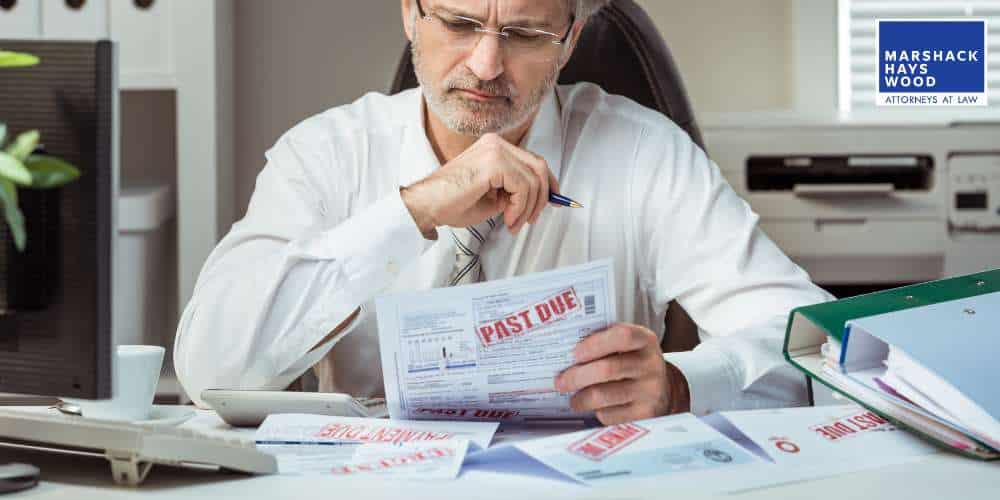
Alternatives to Bankruptcy for Small Businesses
Small business owners who want to avoid a court filing may benefit from bankruptcy alternatives that provide practical paths toward stability and financial recovery. These options can help reduce obligations, improve cash flow, and support long-term planning without the formal requirements of a bankruptcy case. Depending on the business’s financial profile and the cooperation of unsecured creditors and lenders, these strategies may offer an effective framework for repaying debts while preserving operations.
Common alternatives include:
- Debt settlement and negotiation with creditors
- Business restructuring outside of bankruptcy court
- Asset sales, mergers, or dissolutions
When challenges like these arise, a small business bankruptcy lawyer at Marshack Hays Wood can step in with the guidance and strategy you need to protect your operations and future.
Common Challenges in California Small Business Bankruptcy Cases
Small business bankruptcy often brings issues that require careful evaluation and strategic planning. Owners may struggle to separate personal exposure from business obligations, determine the fair value of assets, or manage disputes that arise during the process. Addressing these challenges early helps create a more organized and effective case.
Common challenges include:
- Distinguishing personal liability from business debts
- Valuing and liquidating business assets
- Addressing disputes with creditors or business partners

How To File Bankruptcy as a Small California Business
- First, assess your business’s financial situation thoroughly to determine if bankruptcy is the most suitable option. Consulting with an Orange County bankruptcy attorney can provide valuable insights into the available options and potential outcomes.
- Next, select the appropriate bankruptcy chapter based on factors such as your business’s legal structure, amount of debt, and financial goals.
- Before filing bankruptcy, small businesses typically must undergo pre-bankruptcy counseling with an approved credit counseling agency. This counseling session helps assess the financial situation and explore alternatives to bankruptcy.
- Once completed, gather all necessary financial documents, including income statements, tax returns, and a comprehensive list of assets and liabilities.
- With the guidance of a bankruptcy attorney, prepare and file the bankruptcy petition, along with required schedules and forms, with the bankruptcy court.
- The petition officially initiates the bankruptcy process and triggers an automatic stay, halting creditor collection actions against the business.
How Our Orange County Bankruptcy Attorneys Help Small Business Owners
When you work with a small business bankruptcy lawyer at Marshack Hays Wood, you receive guidance that covers every step of the process, from the first financial review to the final court orders. We help you understand whether liquidation bankruptcy or a reorganization option is best for your situation, taking into account your debts, assets, and long-term business operations.
If reorganization is the right path, our experienced attorneys assist in drafting a workable reorganization plan, preparing the disclosure statement, and navigating the court procedures required for plan confirmation. For clients pursuing liquidation under Chapter 7, we explain how the trustee handles asset liquidation and what protections may apply to both business and personal property.
Throughout the entire process, we explain which documents are legally required, outline what to expect at each stage, and make sure every filing complies with federal and state bankruptcy law. From helping you choose the right chapter to preparing petitions, representing you in hearings, and addressing creditor concerns, we provide steady support that helps you move forward with clarity and confidence.

Why Choose Marshack Hays Wood for Small Business Bankruptcy Representation?
Selecting the right lawyer can make a significant difference when your business is facing financial strain. Our experienced Orange County small business bankruptcy lawyers at Marshack Hays Wood combine decades of bankruptcy experience with a practical, solution-focused approach tailored to the needs of small business owners. We offer clear guidance, strong advocacy, and a deep understanding of the challenges businesses face in both reorganization and liquidation settings.
With our dedicated law firm at your side, you gain trusted support and a strategic plan designed to help your business rebuild and move toward financial stability at last.
Small Business Bankruptcy FAQs
Does Bankruptcy Clear All Business Debt?
Bankruptcy does not eliminate all business debt. What gets discharged depends on the chapter filed and the type of debt involved. In Chapter 7, most unsecured debts (i.e., credit card balances and medical bills) can be wiped out, but obligations such as taxes, secured debts, and debts tied to fraud generally remain.
In Chapter 11, the business creates a repayment plan that restructures its obligations. Some debts may be reduced or discharged, but most are repaid over time as part of the plan.
Chapter 13, available to qualifying small business owners with regular income, also uses a three to five-year repayment plan. Like Chapter 11, it may discharge some debts, but others must be repaid based on the court-approved plan based on your unique circumstances.
Can You Start a New Business After Bankruptcy?
Yes, you can start a new business after bankruptcy. Nothing in bankruptcy law prohibits you from opening another business once your case is complete. In fact, many business owners have successfully started new companies after bankruptcy, using the experience to create a more stable foundation moving forward.
Although bankruptcy may limit access to credit or financing for a period of time, it does not prevent future entrepreneurship. Launching a new venture may require careful budgeting, alternative funding sources, or a more conservative financial approach. Rebuilding credibility through responsible money management and a strong business plan can help restore lender and investor confidence.
Will Business Bankruptcy Affect My Personal Credit?
Yes, business bankruptcy can affect your credit, but the impact varies based on the chapter filed and whether you are personally liable for the business’s debts. In Chapter 7, where assets are liquidated, the bankruptcy may appear on your personal credit report if you guaranteed or are otherwise responsible for the obligations. This can lower your credit score and make it more difficult to secure new financing.
Chapter 11, which focuses on reorganizing and repaying debts while continuing business operations, may also influence your credit, though the effect is often less severe than a Chapter 7 liquidation.
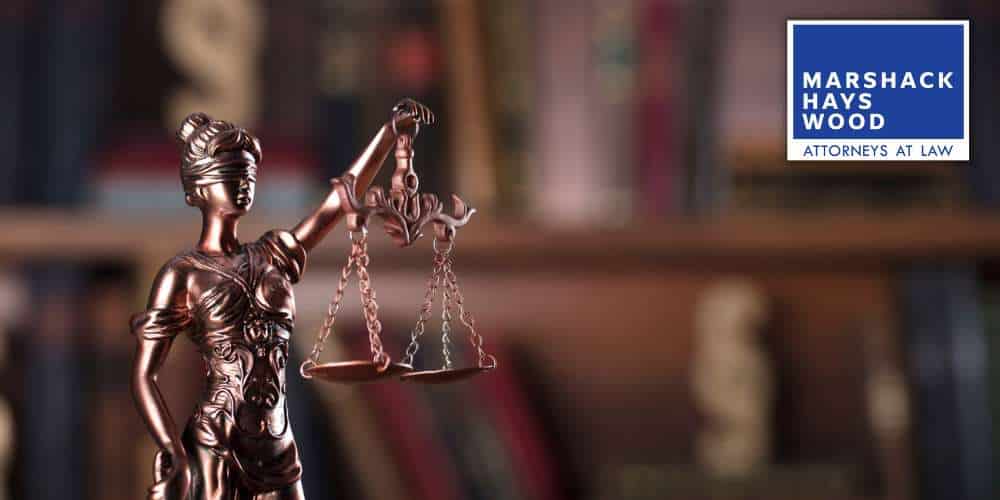
Call Today For Skilled Small Business Bankruptcy Representation in Orange County, CA
When financial pressure threatens your business, having a trusted law firm on your side makes a meaningful difference. At Marshack Hays Wood, our law offices serve Orange County, including Anaheim, Huntington Beach, Santa Ana, and Newport Beach, as well as nearby Los Angeles and San Bernardino Counties. Our Southern California bankruptcy law firm takes the time to understand your individual circumstances, explain how various factors affect your options, and provide clear guidance on liquidation, reorganization, or non-bankruptcy alternatives.
Our experienced bankruptcy attorneys are committed to helping you protect your business, regain stability, and pursue a fresh financial start with confidence. Whether your case involves complex creditor issues or the need for immediate relief, we are ready to guide you through every step. Contact us at (949) 333-7777 or use our online form to get started today.
READY TO GET STARTED?
At Marshack Hays Wood, our attorneys provide the legal support you need to move forward with confidence. Let us help you take the first step toward financial stability.
